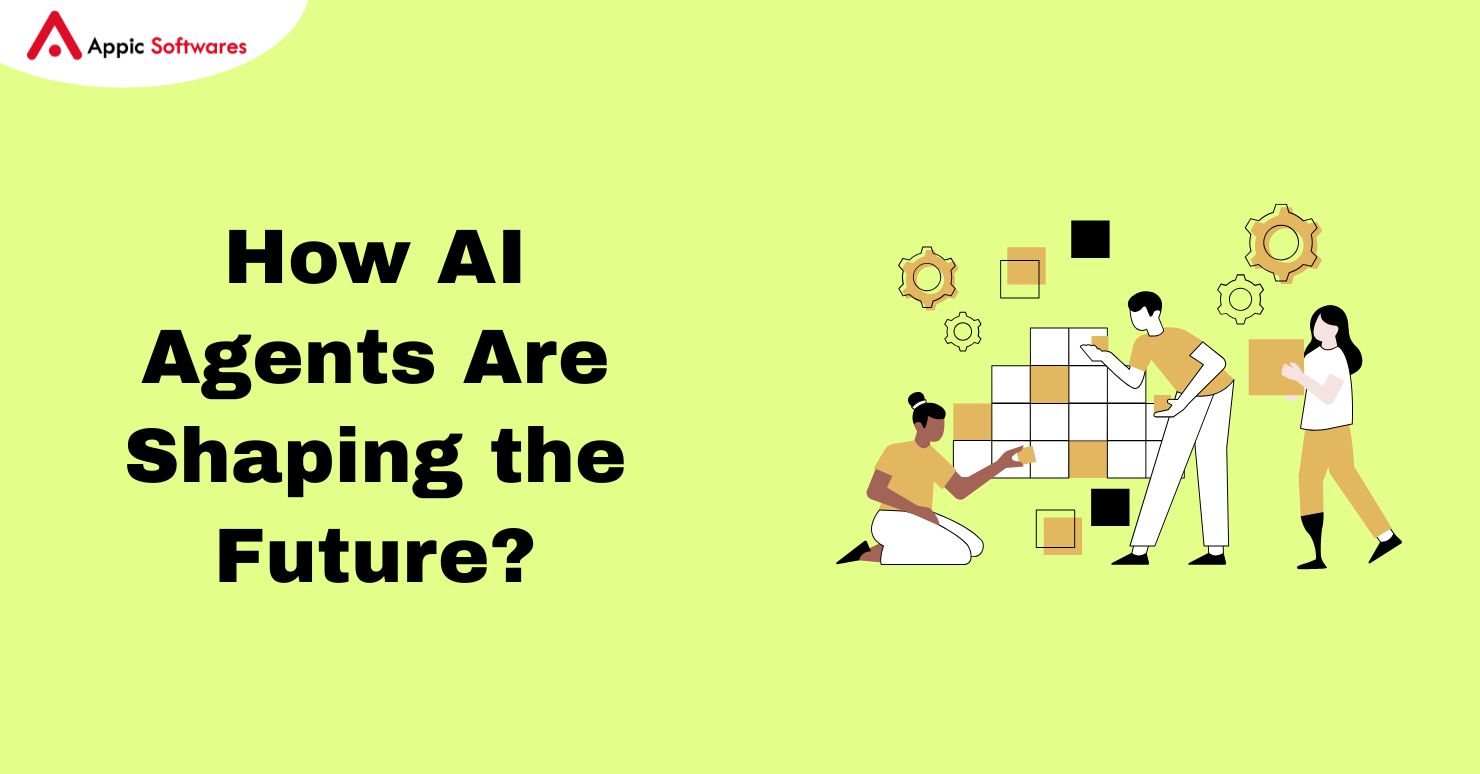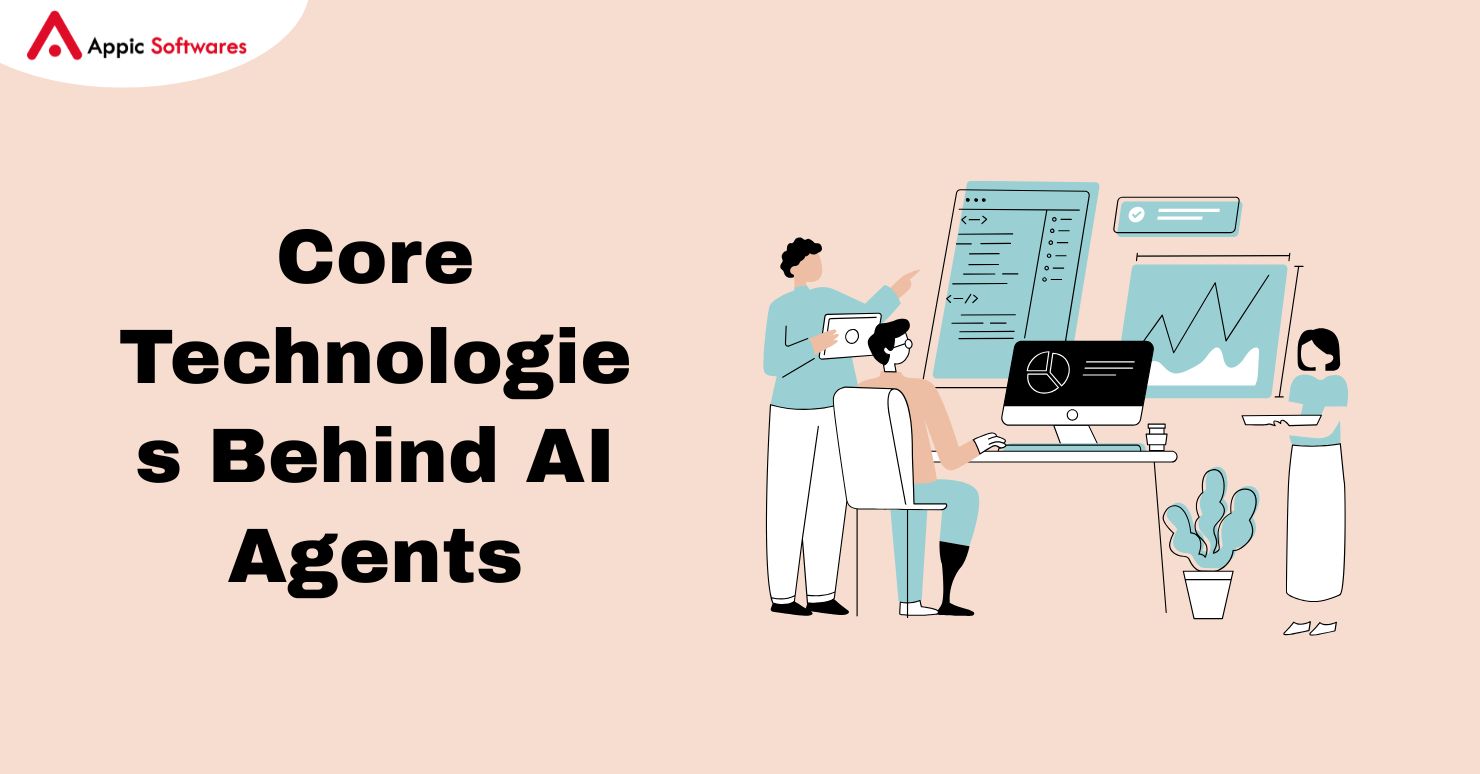
AI is not just a thing of the future anymore. It has become a major force behind changes in businesses in many fields. AI agents are at the heart of this change. They are smart software programs that can feel their surroundings, process information, make decisions, and take actions to reach set goals. AI agents can do more than just follow fixed commands, which is different from regular software. They can change, learn from data, and do things on their own.
For any business or entrepreneur considering AI agent development, it’s important to understand how these systems work, the different types of AI agents, their benefits and challenges, and their future potential. This article breaks it all down step by step in simple language.
Understanding AI Agents
An AI agent can be defined as an autonomous system that interacts with its environment through sensors and actuators, processes information using built-in intelligence, and then performs actions to achieve specific objectives.
For example:
-
A customer support chatbot that answers user queries is a simple AI agent.
-
A self-driving car that evaluates risks and drives on its own is a more advanced intelligent agent in AI.
The fundamental idea behind AI agents is that they mimic human-like behavior in decision-making. They are designed to reduce human workload by taking on repetitive, time-consuming, or data-heavy tasks. This shift is allowing businesses to automate operations and improve efficiency in a way that was not possible with traditional software.
Types of AI Agents
To better understand how AI agents operate, it is important to explore the different types of agents that exist. Each type is designed with different levels of complexity and adaptability.
- Simple Reflex Agents are the most basic type. They act based on predefined rules and do not store any memory of past actions. For example, a thermostat turning on cooling when the temperature rises is a simple reflex agent.
- Model-Based Agents are slightly mor
e advanced. They use an internal memory model to make decisions. For example, a chatbot that remembers what a customer asked previously and provides a related response is a model-based agent. - Goal-Based Agents are designed to achieve specific goals. They evaluate different possibilities and select the one that leads to the desired outcome. A delivery app that plans the shortest route to a customer’s home is an example of a goal-based AI agent.
- Utility-Based Agents are capable of optimizing results. They not only reach goals but also evaluate the best possible way to achieve them based on utility, efficiency, or cost. An e-commerce recommendation system that chooses the best product for a customer by analyzing price, ratings, and demand falls under this category.
- Learning Agents are the most advanced type. They learn from past experiences and improve themselves over time without human intervention. A self-driving car that becomes better at handling road conditions with more driving experience is an example of a learning agent.
For businesses, the type of agent to use depends on the complexity of tasks and the long-term vision. Simple reflex agents are suitable for basic automation, while learning agents are required for advanced, adaptive solutions.
Core Technologies Behind AI Agents

The development of AI agents depends on several advanced technologies working together. Natural Language Processing (NLP) allows agents to understand and communicate in human language, which makes them highly effective for customer service and knowledge-based roles. Machine Learning and Reinforcement Learning provide the ability to analyze data,
learn from feedback, and improve decision-making over time.
Another important element is Retrieval-Augmented Generation (RAG). This technique ensures that agents can fetch relevant, accurate, and updated information from databases or the internet, which prevents errors or hallucinations that AI systems are often criticized for. Tool integration and APIs give agents the ability to perform actions beyond just conversation. They can now interact with business applications, websites, or databases to complete tasks end to end. Memory systems further enhance their usefulness by allowing them to store and recall context from past interactions.
When combined, these technologies make AI agents powerful and for this you should take help from artificial intelligence developers who are reliable, and capable of functioning in real business environments.
The Step-by-Step Evolution of AI Agents
The role of AI agents is evolving gradually, and businesses are adopting them in stages.
- The first stage is routine automation: In the beginning, agents were mainly used to handle repetitive and simple tasks. These included answering frequently asked questions, scheduling meetings, or generating simple reports. The aim was to reduce manual effort and save time.
- The second stage is augmentation of professional work: Agents are now moving beyond repetitive tasks to act as assistants for professionals. For example, lawyers use agents to draft case summaries, marketers use them to design campaign ideas, and doctors use them to analyze patient reports. The agent does not replace the expert but helps them work faster and more accurately.
- The third stage is autonomous action: At this level, AI agents act independently on behalf of humans. For instance, an AI travel agent can not only suggest hotels but also book them after checking a user’s preferences and calendar. This reduces human intervention to just approving or monitoring the final outcome.
- The fourth stage is multi-agent collaboration: The future is about agents working together like human teams. A supervisor agent will assign work to specialized agents, monitor progress, and combine results. This mirrors how businesses operate today with teams and departments. Python Multi-agent collaboration also brings efficiency, reliability, and scale to AI adoption.
Industry-Wise Impact of AI Agents
Different industries are changing as a result of AI agents. In terms of customer service, they offer reliable, 24/7 assistance and cut down on wait times. Although safety and validation are still crucial, they help doctors in the healthcare industry with diagnosis, patient triage, and research. They manage compliance, identify fraud, and offer individualized financial advice in the finance industry. They optimize inventory, provide tailored recommendations, and serve as shopping assistants in e-commerce. While AI agents optimize routes, track shipments, and forecast demand in logistics, they also modify teaching strategies to suit individual learning styles in education.
All industries have one thing in common: agents lower costs while increasing speed, accuracy, and customer satisfaction. Companies that use agents report quantifiable increases in competitiveness and productivity.
Business Benefits of AI Agents
The adoption of AI agents brings clear advantages. Efficiency is one of the biggest benefits, as agents can handle tasks much faster than humans and with fewer errors. They also enable scalability, allowing companies to serve thousands of customers simultaneously without adding new staff. This leads to significant cost savings in operations.
Another major benefit is round-the-clock availability. Unlike human employees, AI agents work continuously, ensuring uninterrupted services. They also support better decision-making by analyzing large amounts of data in real time and turning it into useful insights. Finally, personalization is a critical advantage. Agents can tailor responses, recommendations, and services to individual users, building stronger relationships and improving loyalty.
In fact, according to Gartner, by the end of 2026, 40% of enterprise applications will incorporate task-specific AI agents, up from less than 5% now.
Challenges and Risks of AI Agents
Despite their benefits, AI agents come with challenges. Accuracy remains a key issue, as agents may generate wrong or misleading answers if not properly trained or grounded. Security is another concern, since agents often need access to sensitive business or customer data. Protecting this information is essential.
Bias in decision-making is also a potential risk, as agents trained on biased data may produce unfair outcomes. Over-dependence on agents without human oversight can create business risks if the system fails. Additionally, integrating agents into existing systems is not always simple and requires careful planning, testing, and API management.
Developing and Adopting AI Agents in Business
For companies that want to adopt AI agents, a structured approach is necessary. The first step is to identify use cases where agents can deliver clear value, such as customer support, scheduling, or invoice processing. Once the problem is defined, businesses must choose the right type of agent depending on the complexity of the task.
The next step is to design the agent architecture, including input channels, data sources, APIs, and memory systems. After development, the agent should be tested in phases, starting with prototypes and human-in-the-loop models where humans supervise the agent’s actions. Accuracy, efficiency, and return on investment should be measured carefully before scaling.
Security and compliance are critical during this process. Data must be encrypted, actions should be logged, and industry regulations such as GDPR or HIPAA must be followed. Once validated, businesses can integrate the agent into wider operations and train employees to work effectively alongside AI systems.
The Future of AI Agents
The future of AI agents is full of possibilities. We are moving towards ecosystems where multiple agents collaborate to perform complex projects, almost like digital teams. Industry-specific agents will become common, wit
h pre-built solutions designed for healthcare, finance, retail, and logistics. Voice-first agents will make interactions more natural, while self-improving agents will learn continuously without frequent retraining.
Another important future direction is ethical and ex
plainable AI. As businesses rely more on agents for decision-making, transparency and fairness will become essential to build trust with customers and regulators.
Conclusion
AI agents are making the future happen, one step at a time. They are changing how businesses work by automating simple tasks and working together like human teams. There are huge benefits in terms of efficiency, cost savings, scalability, and personalization. At the same time, issues like bias, security, and accuracy need to be dealt with carefully.
AI agents are more than just a new technology trend. They are a big change in how work is done, and the businesses that use them wisely will be the ones that do well in the future.
Are you ready to make smart AI agents that will change how your business works? At Appic Softwares, we focus on making AI agents that are just right for your business. We can help you with anything from automating customer support to making processes more efficient to making decisions easier.
Let’s create the future together. Contact us today to start your AI agent journey!
FAQs
1. What are AI agents in simple terms?
AI agents are intelligent software programs that can sense their environment, process information, and take actions to achieve specific goals. They can range from simple chatbots to advanced systems that make real-time decisions.
2. Why are AI agents important for businesses?
AI agents help businesses save time, reduce costs, and improve customer experience. They can automate repetitive tasks, provide instant support, analyze large data sets, and assist in making smarter business decisions.
3. What are the main types of AI agents?
The main types include simple reflex agents, model-based agents, goal-based agents, utility-based agents, and learning agents. Each type has different capabilities depending on the business use case.
4. How do AI agents differ from traditional software?
Unlike traditional software that follows pre-defined rules, AI agents can adapt, learn, and improve over time. This makes them more flexible and capable of handling complex real-world problems.
5. Can AI agents be customized for my business?
Yes, AI agents can be designed to fit your industry and specific needs. From e-commerce chatbots to financial advisory agents, businesses can deploy tailored solutions that align with their goals.


